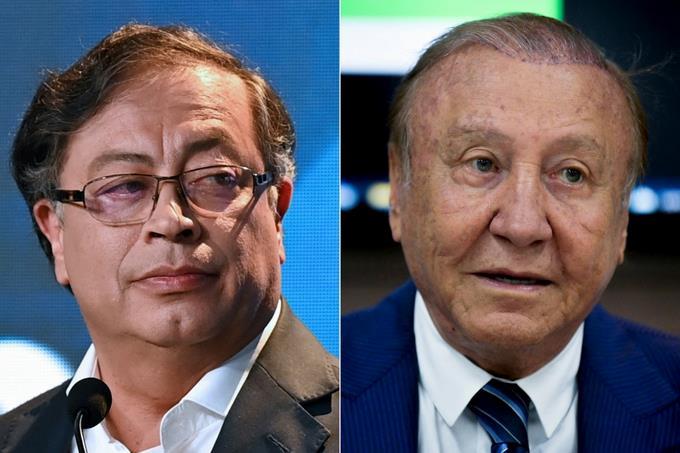The next government of Colombia will receive a country that burns at its extremes. Although violence has lost prominence in the presidential campaign, the armed groups that profit from drug trafficking have advanced in recent years on the borders with Venezuela, Ecuador and Panama.
The 2016 peace pact with the FARC guerrillas reduced the violence and opened the field for new electoral issues, but the bloodshed does not stop: in 2021 the country registered the highest homicide rate since 2014, almost 28 murdered per 100,000 inhabitants, according to the defense ministry.
The winner of the ballot between the senator and ex-guerrilla Gustavo Petro and the surprise of the campaign, the millionaire Rodolfo Hernández, "receives borders whose security contexts have deteriorated over the last four years"Jorge Mantilla, director of conflict dynamics at the Ideas for Peace Foundation, tells AFP.
eternal problem
Colombia continues to be the main exporter of cocaine in the world, despite meeting the goals of eradicating drug crops year after year. According to the most recent report from the White House, in 2020 the country reached a record production of 1,100 metric tons of white powder. Most of it is processed and exported on the border with Venezuela and Ecuador.
On this last border, the army has killed several dissident leaders of the peace pact with the FARC who control the drug trafficking routes.
This week alias Mayimbú fell, accused of assassinating local leaders and having alliances with Mexican cartels.
But his death "it is something episodic that does not change the dynamics at all" of the narco, indicates Colonel(r) John Marulanda, president of the Colombian Association of Retired Officers.
To break the business chains, Mantilla proposes to resume the voluntary eradication of coca plants in exchange for economic benefits.
The initiative was part of the peace agreement, but it took a backseat in the government of Iván Duque, who favored the elimination of drug crops by force.
"We must strengthen this program and fulfill the obligations with the families that signed it"emphasizes the researcher.
Experts point out that the fierce hunt by illegal groups has also caused bloody events such as a military operation in April in the border department of Putumayo that left eleven dead, among indigenous people and other civilians according to complaints.
more than drug dealers
The armed groups mutated, diversified their businesses without leaving cocaine behind.
On the porous 2,200-kilometer line that separates Colombia from Venezuela, the ELN – the last recognized guerrilla group in Colombia -, dissident groups and drug traffickers "have imposed themselves as immigration and border authorities" Given the frequent closures at official steps due to the pandemic and the tensions between the two countries, Mantilla points out.
And in the thick jungles bordering Panama, the Clan del Golfo led by the extradited capo Otoniel, enriches itself with the traffic of migrants who go to North America.
In both regions, the groups that until four years ago were atomized have now aligned themselves with "large structures" such as the Clan or the dissidence known as Segunda Marquetalia to coordinate illegal businesses, notes Juana Cabezas, from the independent think tank Indepaz.
According to the expert, the ELN also profits from gold mines in Venezuelan territory.
And on the Colombian side, "people fear them, but they accept that they are there because they provide markets [víveres] and this kind of thing"Heads notes.
Reconcile with Venezuela
Petro and Hernández agree to resume diplomatic relations with Venezuela, broken since 2019, when Duque recognized the opposition Juan Guaidó as president of that country. Since then, Bogotá has accused Nicolás Maduro of providing refuge to the armed groups that operate on the border, while Caracas has accused Colombia of plotting against the Chavista government.
Meanwhile, the border area is a theater of war: attacks against public forces, often lethal, and bloody clashes between dissidents and the ELN, such as the one that left twenty dead at the beginning of the year.
For Heads, normalize relations "could bring a casualty in clashes between armed groups on the border" and does not rule out that Venezuela facilitate "an eventual agreement under the table" to de-escalate the violence.
The Maduro government denies having links with these organizations.
With diplomatic relations the "border commissions to promote (…) greater security at the border"adds analyst and former diplomat Eduardo Pizarro in his recent essay entitled "The internal and external security challenges in Colombia today".
